640 East
640 East has been made from upcycled shipping containers, and it has also partnered with local London craft coffee producer Caravan Coffee Roasters, who source and roast the world’s best beans from single farms and speciality estates in Ethiopia, Colombia and Rwanda. The team also hand-selects pastries from a range of local suppliers.
The Alchemist
The Alchemist works for the not-for-profit social enterprise Carbon Free Dining. By adding a discretional 99p on to every bill, it guarantees to plant a fruit tree in South Africa for every bill paid. So far it has planted more than 107,000 trees, and it even has its very own dedicated Alchemist Forest.
Badiani Gelato
Badiani Gelato is a zero-plastic company: all of its packaging is compostable. It also has a laboratory that takes a close look at its sustainability to make sure its offerings are as ethical as they can be, and it invested in a system that constantly reuses the same water to ensure the correct functioning of the machines, meaning that there is no wasted water. It buys its products locally to support local farmers, respects its neighbourhood and limits transport movement.
Bird at Wharf Kitchen
Making its offering of chicken and waffles even more enticing, all of Bird’s poultry is sourced in the UK from a single family-run farm in Yorkshire, which is now served in plant-based compostable packaging for both dine-in and takeaway options. Pick up from Wharf Kitchen in Jubilee Place.
The Breakfast Club
The Breakfast Club doesn’t use any palm oil and where possible it doesn’t use airfreighted goods, while it also recycles its food waste into energy. Sustainable and locally found where possible, all of its animal products are UK sourced and have the BRC certification. What’s more, it stocks ethical drink brands including Joe’s Tea Co, Karma Cola and Union Hand Roasted Coffee.
BrewDog Canary Wharf
Once seen as the bad boy of the beer world, BrewDog’s approach to environmental responsibility is now at the forefront of its operations and it is a certified B-Corp. In 2020, it purchased a 9,308-acre plot in the Scottish Highlands, and in 2022 it began planting its own trees on this land, embarking on one of the largest reforestation and peatland restoration projects the UK has ever seen.
The carbon negative business and all of its brewing by-products are reused as biofuels and fertilisers, meaning that a pint from its extensive draught and can menu at its Churchill Place outpost is that extra bit guilt-free.
Caffè Nero
Since 2016 Caffè Nero has been collecting its used coffee grounds from its 122 stores in London for processing into fuels which power biomass boilers. It is passionate about plastic reduction and grew its existing partnership with KeepCup in June 2018 to ensure that KeepCups are available in every single store, and it encourages the use of these reusable cups by offering two stamps per coffee on its loyalty card or via its app.
Chipotle
Chipotle’s chairman and CEO Brian Niccol says “I, along with the rest of the organisation, strongly believe that how we grow our food is how we grow our future”. And the team has clearly put this into practice as in March 2021, it introduced a new Environmental, Social, and Governance (ESG) metric that ties executive compensation to ESG goals. The objectives, which are categorised by Food and Animals, People and the Environment, hold its executive leadership team responsible, with 15 per cent of its officers’ annual incentive bonuses tied to the company’s progress towards achieving these ESG goals.
Cojean
Cojean donates 10 per cent of its profits to its nourrir aimer donner foundation which fights poverty and contributes to the sustainable development of the poorest communities worldwide. The Certified B Corporation’s other initiatives include 70 per cent of its packaging being eco-designed and no animal-derived gelatin used in its products.
Costa
Costa has made a whole host of positive changes, from opening its state-of-the-art roastery that was built with sustainability in mind – where it can reduce the energy taken to roast each tonne of coffee by a huge 30 per cent – to having electric car parking spaces in the roastery’s car park. Even its location in Essex was a key factor – being so close Tilbury Docks, its Rainforest Alliance certified green coffee beans now only have to travel 14 miles – halving the original journey distance they used to take to its previous roastery in Lambeth!
Costa’s stores have been powered by 100 per cent renewable energy since April 2017, and in a growing number of them and its roastery, it even has on-site energy generation such as solar panels.
Emilia’s Crafted Pasta
Making almost everything on the menu themselves from start to finish each morning, Emilia’s Crafted Pasta has no additives, artificial ingredients or preservatives in its food; its four eco practices include sustainability, practising regenerative agriculture, using organic produce and having minimal intervention in the natural process. Not only this, but the teamwork with local hand-picked suppliers, and any food that is imported – mainly from Italy – is transported by boat and train, rather than by plane.
Gaucho
Aware of the high environmental impact of its beef production, Gaucho is part of the Sustainable Steak Movement, which was launched in alignment with COP 26 to accelerate the transition towards a carbon conscious beef offering in its restaurants across the UK. It is working with its suppliers and accredited bodies to measure, offset and reduce the carbon footprint of its cattle by 2025 and is aiming to achieve net zero carbon emissions across its business by 2030.
Greggs
Known for its delicious pasties and cakes, Greggs has shops all across the UK and takes its environmental responsibility seriously. It has a bold ambition to be net zero by 2040 – ten years ahead of the current UK Government plan and is building eco shops for the future and retrofitting its existing outlets, taking initiatives to reduce plastic and waste, saving on energy and has partnered with Refill UK to provide free drinking water to customers wishing to refill their own bottles.
Hawskmoor
Hawksmoor is a carbon neutral restaurant group and has been awarded a maximum 3* rating from the Sustainable Restaurant Association for the 12th consecutive year.
And over the years it hasn’t necessarily talked about the work it does behind the scenes, which ranges from 100 per cent of its food waste being sent to anaerobic digestion where it’s turned into biogas, or the oil used in its chip fryers being used to power vehicles. It has also switched the entire company over to green energy, reducing its footprint by the equivalent of taking 103 cars off the road, planting 8,000 trees or switching 18,000 lightbulbs to LED.
As well as all of this, it offsets its direct and indirect emissions with carbon credits funding projects including cookstoves for coffee farmers in Ethiopia, The Myanmar Stoves Campaign, The Nicaforest Program and the Brazil Nut Concessions in Madre de Dios, to name but a few.
Humble Grape
Humble Grape’s shelves are stacked with around 400 sustainable wines imported directly from their cherished “Hero Producers”. These independent winemakers are from small-production, family-run, organic vineyards around the world and champion biodynamic, organic and / or sustainable winemaking. When it comes to food Humble Grape serves some of the best seasonal and organic produce while driving sustainability and a nose to tail approach to cutting waste. Vibrant vegetables used in the plethora of plant-based dishes are supplied by Natoora, a company committed to revolutionising the food system. Seafood is supplied by Marrfish who make fishing more sustainable by promoting underutilised British species of fish; using smaller day boats; and even helping to clean up our oceans by carrying large litter bags on board.
Island Poké
Sustainability is written into the very DNA of Island Poké in Crossrail Place, with founder James Porter overseeing every aspect of the supply chain, from its sustainably caught fish to its new biodegradable poké bowls made from sugar cane pulp. It holds the claim to fame of being the first outfit in Europe to serve a vegan tuna poké and is continuing in this vein with an ever-expanding vegan menu. It only sells drinks in recyclable cans or glass, and its paper bags and bowls are 100 per cent biodegradable.
Joe & The Juice
Hailing from Copenhagen, Joe & The Juice offers a slice of Scandi culture not only through the décor of its establishments but also in its commitment to sustainability. Its goal is to beat its current target of only generating two per cent food waste, and it has also introduced bowls and straws made from sugar cane by-products. Its range of vegan shakes are not to be missed too; pick up from its Churchill Place store.
Le Pain Quotidien
For 30 years, Le Pain Quotidien has been serving up plant-based food and drinks within its bakeries. As part of its small steps campaign – and as part of its journey to have a minimal impact on the environment – it is a member of the Food Made Good Member of the Sustainable Restaurant Association, accelerating change towards an environmentally restorative and socially progressive UK hospitality sector.
As well as this, just some of its initiatives include its menus being printed on recycled paper, choosing organic ingredients sourced mainly from local suppliers and offering its used coffee grounds on a complimentary basis for its customers to use in their garden, for their skincare or to clean kitchen utensils – just some of the uses of this by-product.
Marugame Udon
A member of the Sustainable Restaurant Association, Marugame Udon’s philosophy is to ‘do the right thing’ and runs its business in an ethical and responsible manner with its policy concentrating on people, nutrition and health, communities, environment and responsible sourcing.
MMy Wood Wharf
From the creators of Mercato Metropolitano (MM), MMy Wood Wharf specialises in artisanal, natural and sustainable food in a community market format. Founded on the understanding that each local community needs a centre of aggregation around food, social values and sharing experience, the elements of inclusiveness, sustainability and healthy lifestyle remain at the core of the offering.
It partners with social entrepreneurs who care about sustainability, quality, traceability and ethical production just as much as it does. Thinking globally but acting locally, it has been regenerating forgotten urban areas with ideas and investment to revitalise the community; providing and supporting start-ups involved in local initiatives and providing free cooking classes and free school meals.
Natural Fitness Food
All of Natural Fitness Food’s cups used on its sites are made from paper and are fully compostable. The lids might be a plastic look-alike, but they are actually made out of compostable corn. The brand is further eliminating the amount of single use plastic by only offering compostable cutlery, also made out of corn, and biodegradable paper straws.
It also encourages customers to bring their own shaker or cup for their shake or coffee and as a thank you they get five per cent off their drink.
Neat Burger
Neat Burger is the first of its kind. Ethical, sustainable and delicious, the planet-friendly plant-based full-flavoured game-changer has even been backed by Lewis Hamilton. Not only this, but the eatery also works in association with The Eden Project, and for every product sold, a tree is planted – so your positive impact is doubled with every purchase.
Notes Coffee
According to The World Economic Forum, humanity needs to plant one trillion trees around the world within this decade to fight climate change, so Notes has joined forces with Daterra, a carbon-neutral and climate-positive coffee estate which is taking part in the Tree_llion Project, with the aim of planting three million trees in the next 10 years. The Notes Roas-tree Club has committed to planting one tree for every 20kg of green coffee beans it sells and ensured the seed production and management care for each tree for the next 10 years, and so far, it has planted 1,019 trees.
Other sustainability drives include customers getting 30p off a hot drink if using a reusable cup, serving takeaway drinks in fully compostable cups and offering fully compostable and biodegradable coffee pods, and finally, its House Espresso – Blackwall Estate – comes in 100 per cent compostable packaging.
Ole & Steen
Ole & Steen continuously works hard to ensure it minimises food waste where possible, with much of its leftover bread and pastries being reused in other products, for example, its leftover bread can be used to make bread cream, a starter for new breads.
In another pursuit to cut down on waste, it has a partnership with leading food waste platform Too Good To Go so that surplus baked goods are eaten and enjoyed rather than wasted. Simply download the free Too Good To Go app and search for your nearby Ole & Steen. Customers can then purchase a ‘Magic Bag’ for £5, collect it at an allotted time and enjoy it – these bags contain a variety of leftover treats, from Cinnamon Socials to loaves of fresh bread – and would be worth at least £15 if sold at normal retail price.
Paul
Paul is consistency making changes to makes its business greener. Just some of these include reducing plastic across its portfolio, saving thousands of meals from going to waste and supporting fantastic charities and causes to help pave the way for a happier and healthier future.
Poké House
Poké House’s proteins are non-GMO with no added antibiotics. Its sashimi grade seafood and locally sourced fruits and veggies are delivered and prepared fresh every day while its bowls the meals are served in are made from 100 per cent biodegradable corn or plant fibre. Its focus on sustainability is one of its priorities and is thoughtfully reflected in its restaurants, where reclaimed wood is used in its décor that is sourced from certified fair-trade vendors.
Pure
Living up to its name, Pure takes its environmental responsibility seriously. Across its sites including Cabot Square, customers are incentivised with a 50p discount to bring a reusable cup for their coffee and for those who don’t have a one to hand, can buy one of its collapsible, reusable cups in any store. What’s more, it doesn’t charge extra for plant-based milks and its blend of 100 per cent Arabica coffee is Rainforest Alliance Certified, locally roasted and then ground to order.
Three quarters of Pure’s dishes are vegetarian and over half are vegan, and it uses British beef, free range British chicken and Scottish salmon across the remainder of its menu. It also sends zero waste to landfill and a water refill station offers both still and sparkling varieties for free.
Shake Shack
Shake Shack prides itself on sourcing premium ingredients like 100 per cent antibiotic- and hormone-free proteins – beef, chicken, and pork – which are vegetarian fed, humanely raised and source verified. Additionally, it has remained committed to using cage-free eggs in all its food, its buns are non-GMO, and its vanilla and chocolate frozen custard recipes are made using only real sugar and milk from dairy farmers who pledge not to use artificial growth hormones.
Its Shacks feature reclaimed, salvaged, and certified materials, including impressive tables made from old bowling lanes!
Shutters
Shutters is making simple changes to be part of something bigger. Think locally sourced products, reduction of plastics (with nonsingle use), waste recycling, roasting its own coffee and only purchasing line-caught seafood.
Seoul Bird
Seoul Bird sources its produce as locally as possible to reduce carbon miles on supply chains, takes an active role in recycling, uses environmentally friendly packaging and eliminates single-use plastics and non-recyclable items. In its restaurant, it maintains and upgrades equipment to be energy efficient and enforces energy saving habits by controlling the water, gas and electric usage.
Smashing Plates
Smashing Plates’s founder Neo says of his restaurants: “The menu is seriously fresh and totally traceable. I know where every ingredient in every product has come from.” Not only this but the group strives to reduce its environmental impact through its packaging – which is biodegradable or at least compostable – while its used cooking oil is turned into biodiesel.
Starbucks
By 2030, Starbucks will aim to reduce carbon emissions by 50 per cent; reduce waste sent to landfill from stores and manufacturing by 50 per cent, drive a broader shift toward a circular economy and will also conserve or replenish 50 per cent of the water currently being used for its direct operations and coffee production. It is also putting more plant-based food in its eateries and selling and encouraging reusable cups.
Sticks’n’Sushi
Sticks’n’Sushi has a range of sustainability drives including printing some of its menu and information cards using a CO2-neutral printing company. They use certified paper, and the ink is chemical-free and completely biodegradable; apparently it is so clean that you can even eat it (although not recommended!).
Its fish is ‘caught with compassion’, its takeaway boxes are recyclable, it has switched to paper straws and napkins, and it is going one step further by trying to reduce the amount used.
Urban Greens
Creating honest food the way nature intended, Urban Greens uses locally sourced produce where possible and its packaging is fully recyclable. It is also striving to keep improving its sustainable practices including reducing its carbon emissions and keeping its ingredients local – so as well as the food tasting amazing, it also looks after the planet too.
Veggie Pret
Veggie Pret is 100 per cent meat free, and its alternative milk choices in both this Pret and the others in Canary Wharf are always free of charge. And those with their own reusable cup get 50p off all of its hot drinks.
The Vurger Co. At Wharf Kitchen
Savour plant-based fast food that’s good for the soul and the planet. At The Vurger Co. everything on the menu is 100 per cent vegan and all of its packaging is made from plants, meaning that nothing goes to landfill. Its menu not only generates a tiny fraction of the greenhouse gas emissions that a regular fast-food menu does, but it also uses a minute amount of resources in comparison to red meat.
Wagamama
In October 2021 Wagamama CEO Thomas Heier said of its new menu: “This launch marks an important moment for us as a business, as we officially make our menu 50 per cent plant-based. We’ve been making choices, both big and small, to tread more lightly on our earth.”
As well as making the food environmentally friendly, Wagamama is also tackling food waste, introducing solutions to eliminate plastic and sustainably sourcing of all of its essential branding materials including uniforms, placemats, menus, chopsticks and napkins.
Wahaca
Wahaca has implemented a trio of initiatives to make it more sustainable – it went carbon neutral in 2016, stopped using single-use straws in 2018 and only sources meat from animals in the United Kingdom that are solely fed on a natural diet. It serves free-range chicken and pork, grass-fed beef and MSC certified fish, and has also launched new sustainable dishes such as Wahacamole, Wahaca’s eco-friendly take on guacamole, made with British organic fava beans, coriander and lime, as an easy planet-friendly switch.
More than 50 per cent of its dishes are vegetarian and it takes lots of steps to minimise the resources it uses across its restaurants, from the initial build to the heat and water used.
Wasabi
As well as making sustainability changes across its organisation, Wasabi has pledged to make 90 per cent of all of its UK business packaging reusable or from widely recyclable or home compostable materials by the end of 2024.
Yumtea
As a small and independent business, Yumtea is trying its best to achieve a net zero footprint. Its shop fit-out has been built with sustainability in mind and is as eco-friendly as possible, with earth materials used for its wall and counter covers, along with clay plaster, sourced from Cornwall.
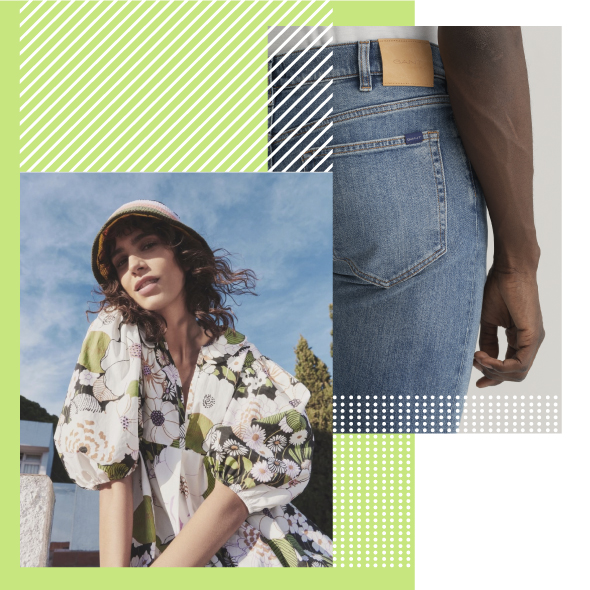
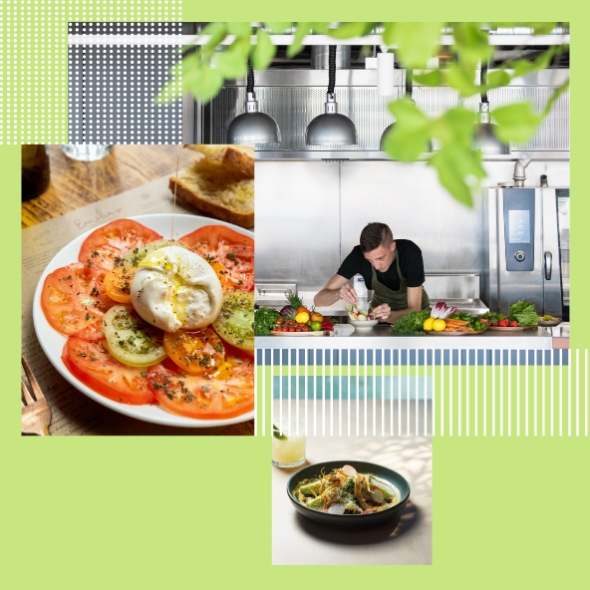
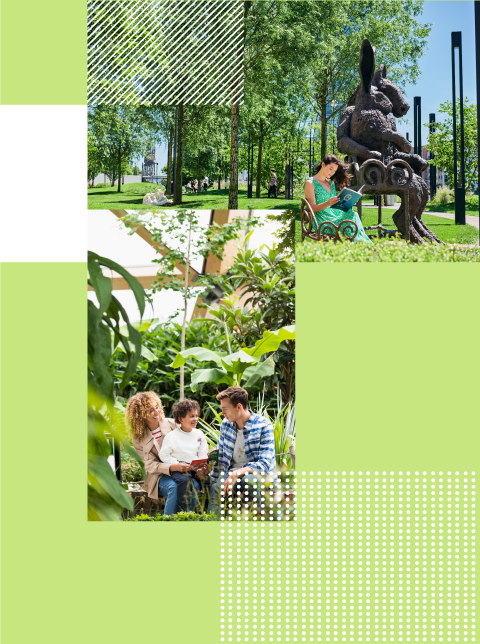

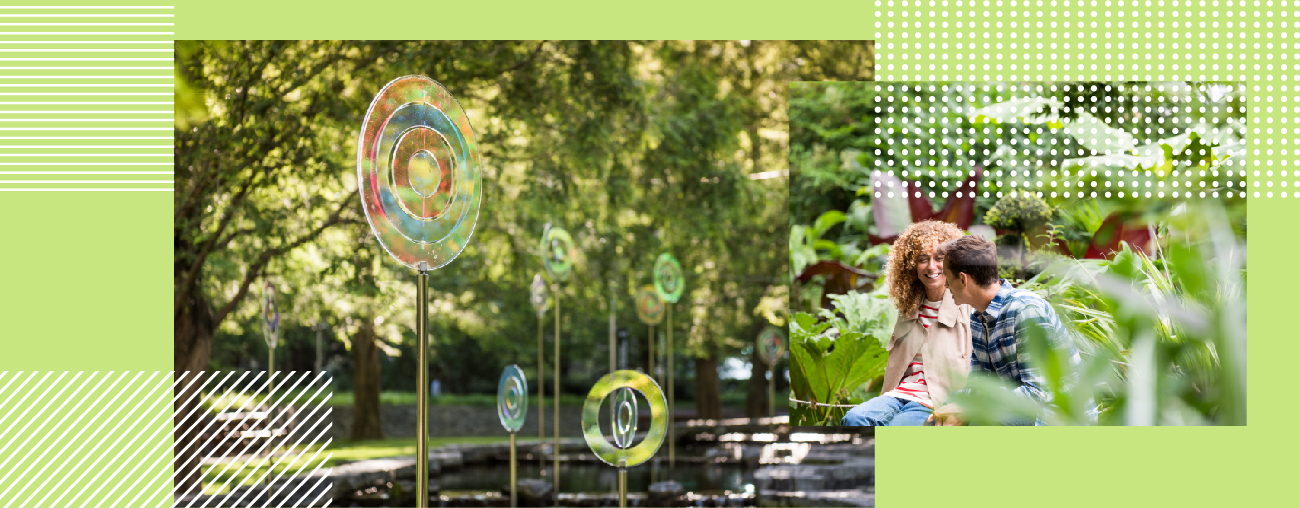
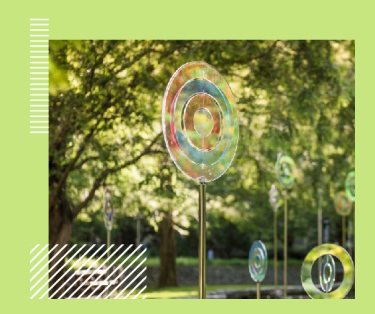
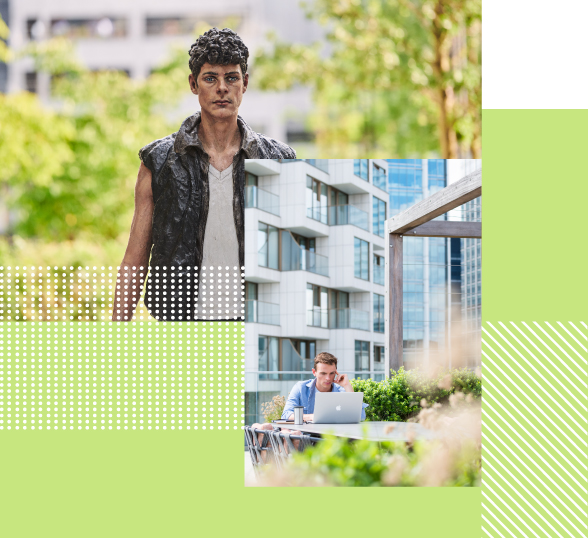

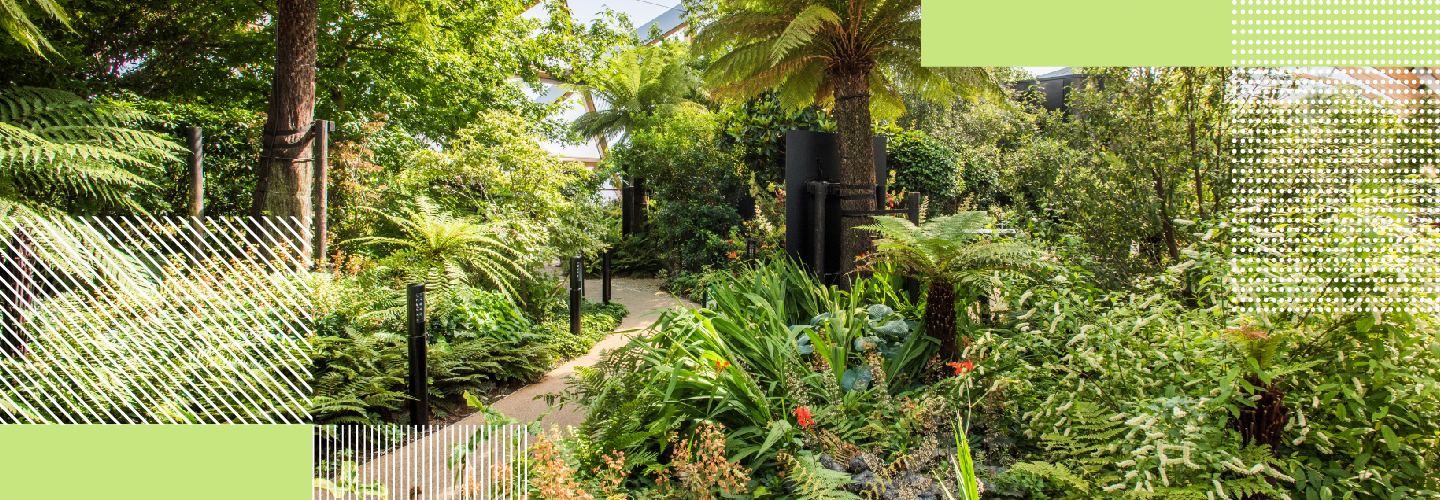
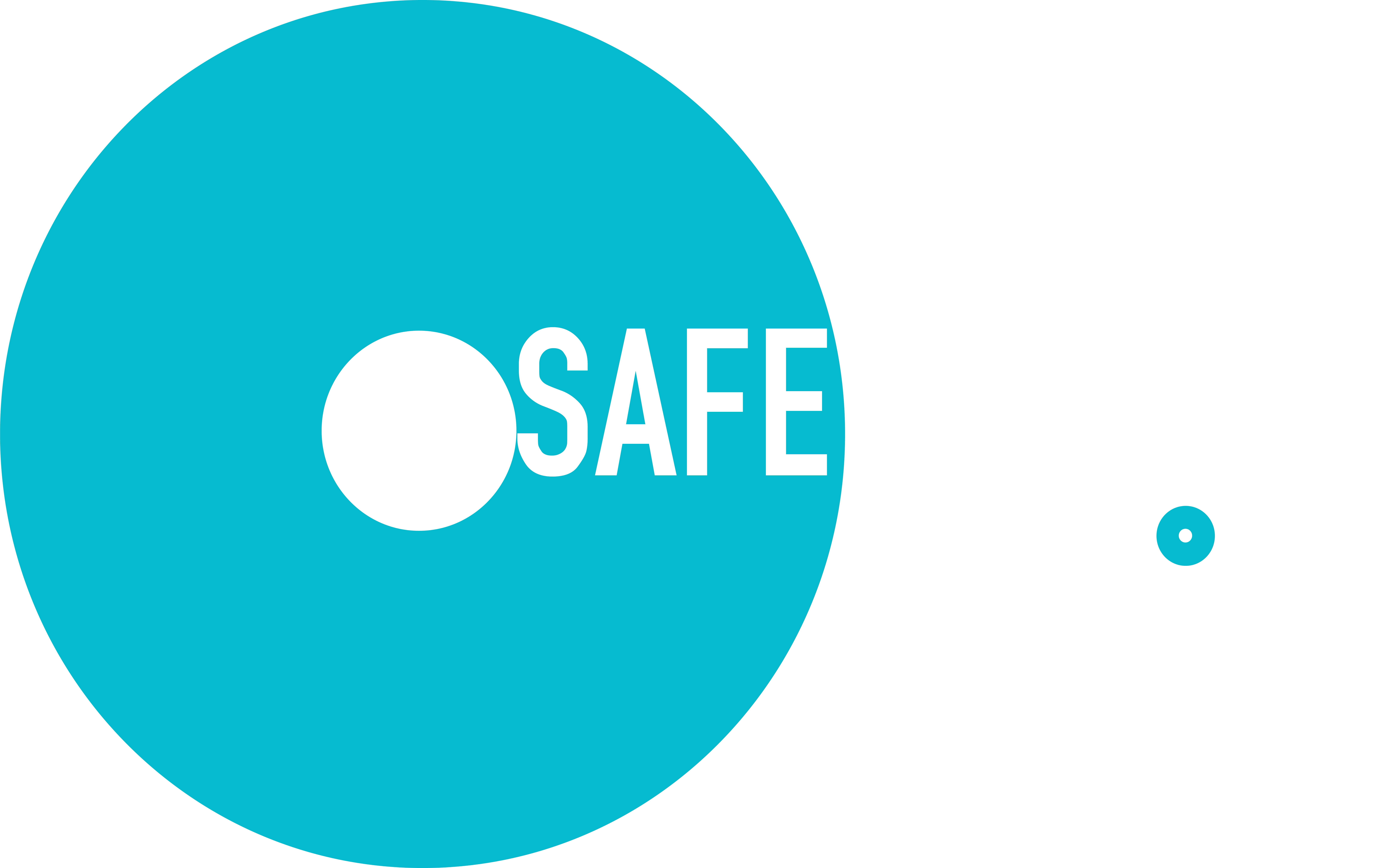 Together we can end domestic abuse
Together we can end domestic abuse